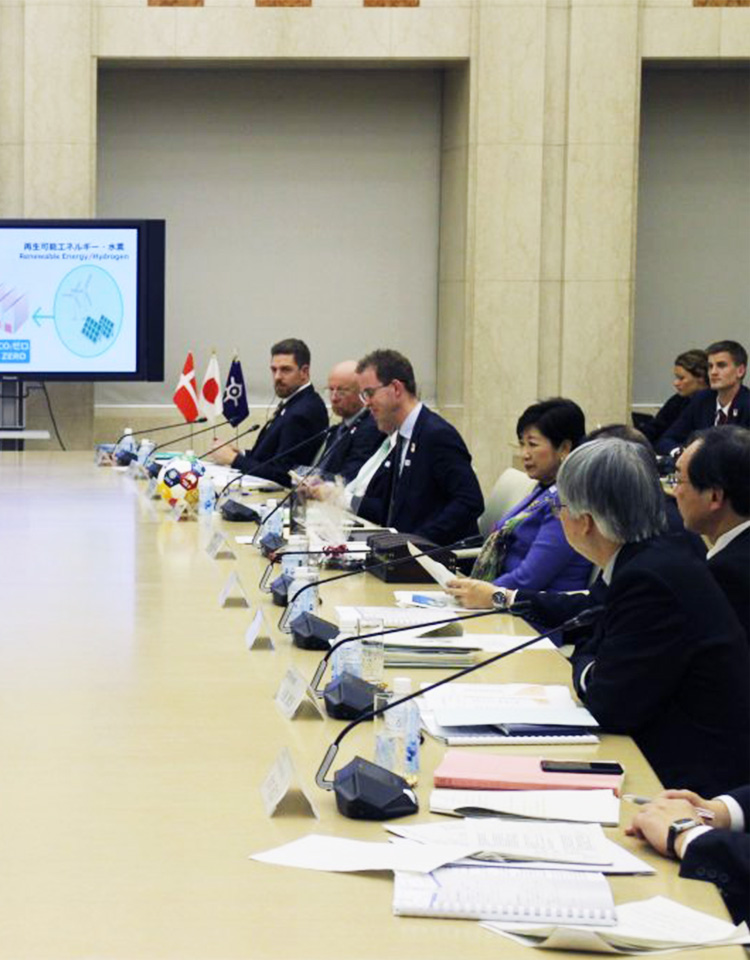

Facilitation of the "Smart City and Environmental Roundtable."
- ZERO HUNGER
- AFFORDABLE AND
CLEAN ENERGY
Issue
Tokyo lagging behind in food waste reduction and renewable energy utilization.
In Tokyo, 270,000 tons of food waste are generated annually, accounting for 4.7% of the national total of 6.43 million tons. Approximately half of this waste, or 130,000 tons, comes from retail and food service sectors. Regarding energy, Tokyo faces challenges due to its high land prices, which limit its potential for renewable energy generation. Over 90% of its electricity consumption relies on fossil fuels, and the majority of this power is generated outside the Tokyo metropolitan area.
In contrast, Denmark has taken a proactive national approach to reducing food waste. The country has consistently advanced efforts such as conducting comprehensive surveys on food waste, crafting policies, and supporting implementation through public-private collaboration. On the energy front, Denmark set bold targets to supply 50% of its electricity from wind power by 2020 and achieve 100% renewable energy across all sectors by 2050. Moreover, Denmark has prioritized hydrogen as a key solution for storing large volumes of renewable energy with fluctuating outputs, working closely with both domestic and international companies to drive forward innovative projects
Approach
Corporate engagement and facilitation for the "Smart City and Environmental Roundtable."
On March 7, 2017, in conjunction with the visit of Denmark’s Minister for Environment and Food to Japan, the “Smart City and Environmental Roundtable” was co-hosted by the Danish Embassy and the Tokyo Metropolitan Government. Discussions were held on the themes of “Reducing Food Waste” and “Realizing a Hydrogen Society,” involving relevant private sector companies.
e-Solutions invited 14 leading companies from various industries to participate in the event and facilitated the discussions on the day.
Under the theme of “Reducing Food Waste,” discussions centered on the importance of collaboration across the entire supply chain. Topics included efforts to reduce food waste through the use of big data and IT for improved information sharing and forecasting accuracy, as well as the need to shift consumer awareness regarding issues such as expiration dates.
For “Realizing a Hydrogen Society,” the discussion covered hydrogen safety, its use in mobility applications like FCVs and FC buses, and its utilization in electricity and heat generation through fuel cells. Additionally, participants explored the potential for promoting decarbonization by producing hydrogen from renewable energy in regions outside Tokyo and transporting it to Tokyo for consumption.
